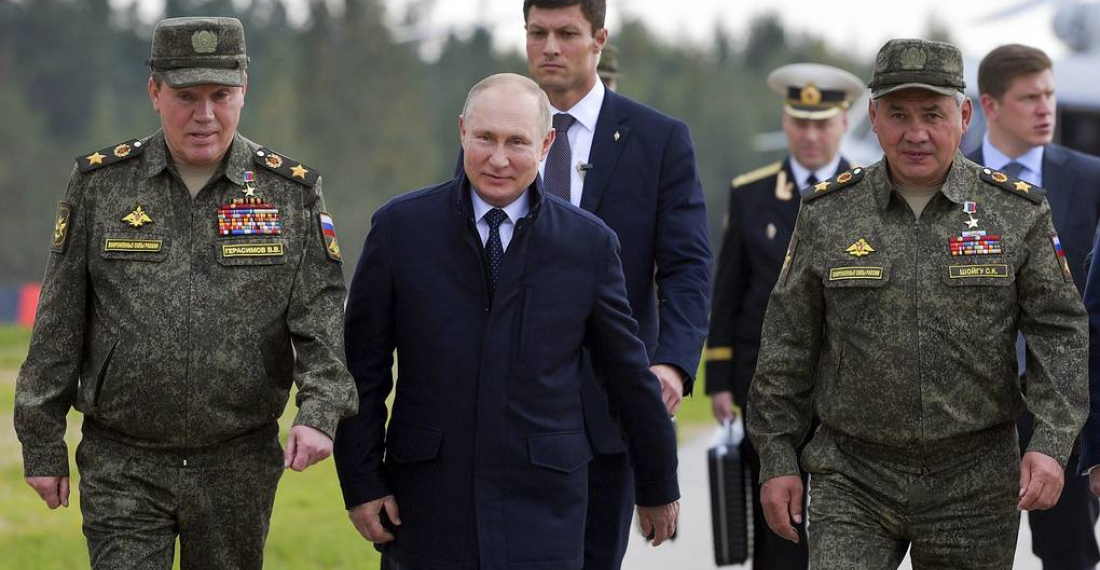Russian President Vladimir Putin on Monday (13 September) watched the main phase of the joint Russian-Belarusian strategic exercise Zapad-2021 at the Mulino training ground in the Nizhny Novgorod Region.
Putin arrived at the proving ground by helicopter in the afternoon. 20,000 officers and men, 5,600 pieces of military equipment, 160 tanks, more than 100 planes and more than 100 helicopters were involved in the exercise.
At the exercise, Putin was shown combat robots in action. The Russian defence minister, Sergey Shoigu, briefed the head of state on this new type of military hardware. Video footage of the defence minister making comments were shown on the Rossiya-1 television channel.
"The orange spots are the first unit of combat robots," Shoigu told Putin, pointing at the proving ground. "They are well-armed. The range of operation is up to three kilometres. Each carries antitank guided missiles."
Earlier, combined force units in conducting defensive operations for the first time used reconnaissance and fire support robots Uran-9 and Nerekhta.
Also, Putin was shown in action the newest armored personnel carrier B-19 equipped with the combat module Epokha. While visiting the proving ground Putin inspected a mobile bakery and a mobile lunchroom.
In the main phase of the exercise Russian military units in cooperation with contingents delegated by Armenia, Belarus, India, Kazakhstan, Kyrgyzstan and Mongolia practiced joint operations to repel advancing enemy forces, conduct manoeuvrable defence and deliver a massive strike and defeat a hypothetical enemy penetration.






